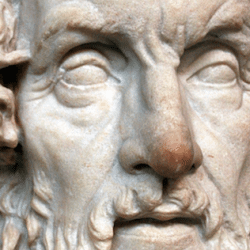Taking up and extending the argument of Hugh Lloyd-Jones’ The Justice of Zeus , William Allan argues that, contrary to common opinion, there si no real contrast between the operations of justice in the two Homeric epics. Nor is “popular picture of ‘amoral’ or ’frivolous’ Homeric gods” accurate.
He argues that “simply to say of ‘divine justice’ in the Homeric poems that ‘this seems an unlikely role for the ’ time -seeking Olympians’ risks creating a false dichotomy, since the gods can be (and are) interested both in their own time and in wider issues of justice. Indeed, . . . any attempt to separate matters of time from wider issues of justice, whether among gods or humans, represents in itself a false dichotomy . . . . This is particularly true of such institutions as the oath and guest-friendship, where the gods’ concern for their own time is simultaneously a concern for justice.” He argues further for “basic continuity between divine and human values: as social beings shaped by the relations among themselves, the gods value justice as much as humans do and are equally ready to assert a basic entitlement to honour and fair treatment, and to support the sanctions that ensure justice and punish its violation. Thus values such as justice are . . . socially constituted on both the divine and human planes, and each level displays not only a hierarchy of power (and the resulting tensions), but also a structure of authority.”











